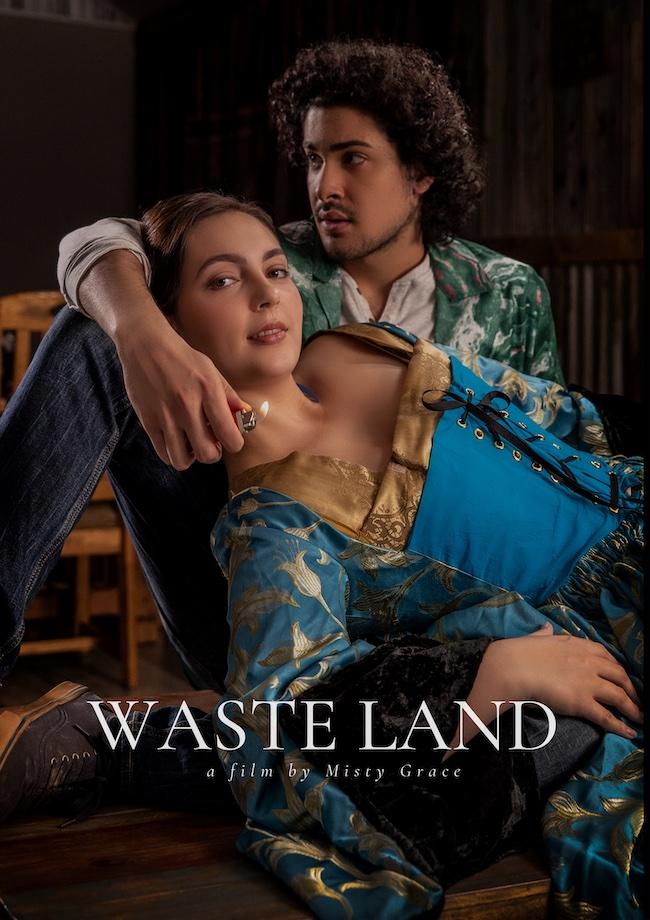Local filmmaker produces short movie ‘Waste Land,’ addressing suicide among Native youth
A short film, featuring an all Indigenous cast and shot in Elk, seeks to address the issue of suicide among Native American youth.
Local filmmaker Misty Shipman, who made the new film “Waste Land” and is a member of the Shoalwater Bay Tribe, said it is about a young Native American man who plans to commit suicide the night after his play ends at the regional theatre. However, he is prevented from doing that when his co-star comes over to say goodbye.
Shipman said the two then engage in a night of antics and shenanigans that culminate with the sun rising the next day.
“Native American youth suicide contagions are an epidemic across America and these contagions, they don’t only impact Native American communities, they also impact any community,” Shipman said.
After seeing suicides among kids in Newport, she said she wanted to talk about how the issue had impacted her and her community.
“We don’t make films to be on a soapbox or to be on a pedestal to tell a message, but films do have messages and they can help other people,” Shipman said.
Indigenous people in the U.S. are at a higher risk of dying from suicide compared to other Americans, according to the Centers for Disease Control and Prevention (CDC). In 2019, it was reported that Indigenous people had a suicide rate 60% higher than the general population.
“[Suicide] is definitely a problem in Native communities,” said Sydney Erickson, one of the lead actors and a member of the Cowlitz Tribe. “I think what’s different about this film is, even though it does show the heartbreaking story of Indigenous suicide it does have a hopeful endnote on it, which I think will help Native youth and Native people in general or people who have suicidal thoughts.”
She added that her character represents hope and she is able to bring back hope to the main character and give him some wisdom so he knows he is not alone.
“I think the relationships between people can really help with that kind of depression,” Erickson said.
Jason Kael, one of the lead actors and member of the Taino people who came from Pennsylvania to play the part, said he hopes the film will give some heart to more than statistics because there are faces to every story.
“This story takes you on a ride with someone who is both a spectator and participant in this problem and that can be a very complicated and a hard thing to deal with and see,” Kael said.
He added that it is a powerful thing to see it from the perspective the film gives.
The Taino people were some of the Indigenous people Christopher Columbus encountered in his travels. However, according to Yale University, within the 25 years of Columbus’s arrival in Haiti most of the Taino population had died from enslavement, massacre or disease.
“For me as an actor reading that text [film script] and knowing that it was going to be something I would have to live through, or something that had to live through me, it’s a very hurtful subject matter,” he said. “I really hope I took it with great care because that’s what I really wanted to do, because it feels so personal.”
Shipman said she wants to join the voices of Native American filmmakers who are doing great work across the U.S., and she hadn’t yet released anything with Native American leads since she began making movies in 2016.
“I’m excited to finally start sharing Native stories in a public forum,” Shipman said. “It’s also nerve-wracking. I don’t consider myself to be a spokesperson by any means of any community, but I can speak to my own experiences growing up as a Native woman on and near Native American reservations.”
“Whether Native or not, we all know what it means to lose someone or to experience grief or fear or love, those are all human emotions that connect us to one another and film is just the ultimate way of finding empathy with another person’s experience,” Shipman said.
Erickson said it’s a heavy and heartbreaking film that is not sugar-coated, but shows the reality of suicide and how heartbreaking it is. Despite its heavy themes, she said there is hope at the end of the tunnel and in the relationships people have with others.
“Whether it be your family, or a girl that you met while playing in the regional theatre, there is hope,” she said.
While the film tells a fictional story, Kael said it is rooted in reality and can be a window into what is going on around people.
The short film, which was shot in Elk, Washington and Florence, Montana, will premiere at One Heart Native Art & Film Festival at the Magic Lantern on Oct. 15 and 16 this year.
Shipman said the film is part of Montana’s “EARN” grant training program, in partnership with Montana Treasure Studios, the University of Montana, Selway Studios and Missoula Commissioners.
If you appreciate FāVS, please consider showing your support by becoming a member today!








